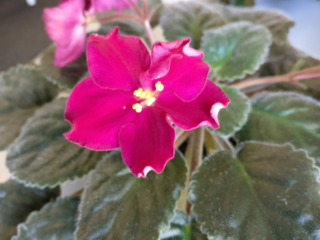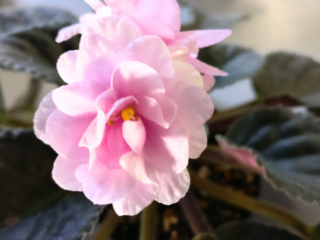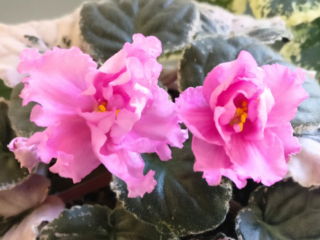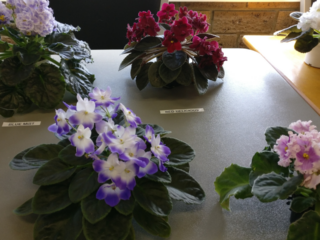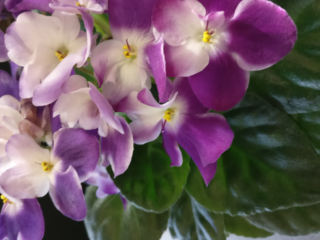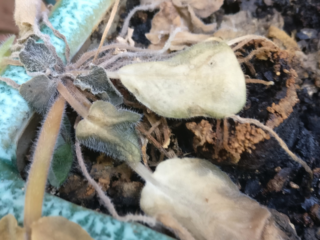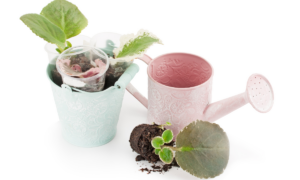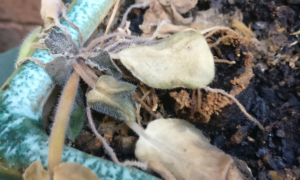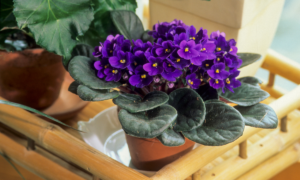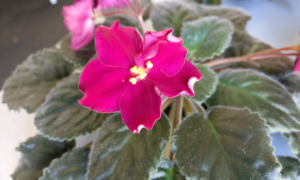African violets are the divas of the houseplant world, with their velvety leaves and vibrant flowers. But are they toxic to humans? The good news is that in general, African violets are considered non-toxic. However, if you have sensitive skin or allergies, you might experience some mild irritation when handling the plant due to its fine hairs.
Table Of Contents:
- What Happens If You Ingest African Violets?
- What If You’re Allergic to African Violets?
- Are African Violets Safe Around Children and Pets?
- Safe Alternatives For Sensitive People
- How to Handle African Violets Safely
- Symptoms of Irritation from African Violets
- Conclusion
What Happens If You Ingest African Violets?
While it’s rare for people to intentionally eat African violet leaves, consuming large quantities of them could lead to gastrointestinal upset. Symptoms like nausea, vomiting, diarrhea, and abdominal pain might occur. But don’t worry, you’d have to eat a lot of leaves to experience these symptoms.
What If You’re Allergic to African Violets?
Some people may have an allergic reaction upon contact with African violets’ foliage or blooms. Rinse your hands with soap and water right away if you think you’re having an allergic reaction. Apply a hydrocortisone cream to the affected area if needed. If symptoms persist or worsen over time, consult a healthcare professional for further advice.
Are African Violets Safe Around Children and Pets?

African violets are considered harmless to both children and animals. It’s wise to instruct your children not to consume or touch any plants without parental guidance. Similarly, while African violets are generally safe for pets like cats and dogs, ingesting large amounts of the plant may still cause gastrointestinal upset in some animals. If you suspect that your pet has consumed an African violet plant and is showing signs of distress such as vomiting or diarrhea, contact your veterinarian immediately for advice on how to proceed.
Safe Alternatives For Sensitive People
If you’re concerned about potential skin irritation from handling African violets but still want to enjoy their beauty in your home, consider growing other houseplants with similar aesthetics but less risk of causing discomfort. Some safe alternatives include Flame Violet (Episcia), Spider Plant (Chlorophytum comosum), and Peperomia Capitata.
In conclusion, African violets are generally safe for humans and pets. So go ahead and enjoy their beauty without worry.
African violets are generally non-toxic to humans and pets, but may cause mild irritation for those with sensitive skin or allergies. Ingesting large quantities of the plant could lead to gastrointestinal upset, and some people may experience an allergic reaction upon contact. Safe alternatives include Flame Violet, Spider Plant, and Peperomia Capitata.
How to Handle African Violets Safely
African violets are beautiful houseplants with lush foliage and stunning blooms. When dealing with African violets, caution should be taken to prevent any possible irritation. Here are some tips to help you safely care for your African violets:
Wear Gloves When Handling
Protect your skin by wearing gloves when handling African violets. Choose gloves made from breathable materials like cotton or nitrile for better grip and dexterity.
Avoid Contact with Skin and Eyes
Be careful not to touch your face, especially your eyes, while handling African violets. If you come into contact with the African violet without wearing gloves, wash your hands right away using soap and water.
Maintain Good Hygiene Practices
- Clean tools: Regularly clean your gardening tools to minimize the risk of transferring irritants between plants.
- Sanitize pots: Before reusing pots, sanitize them with a solution of one part bleach and nine parts water, followed by thorough rinsing under running tap water.
- Air circulation: Ensure proper air circulation around your indoor garden area to prevent dust particles from accumulating on surfaces.
Keep African Violets Out of Reach of Children and Pets

Even though African violets generally aren’t harmful when displayed at home, to be extra safe, keep African Violets away from little children and pets by placing them on high shelves to prevent curious little hands or paws from accessing them. It’s not just about the plant itself, but also potential bacteria found in common potting mixes.
By following these simple tips, you can enjoy growing beautiful African violets without any worries.
To safely care for African violets, wear gloves when handling them and avoid touching your face. Maintain good hygiene practices by cleaning tools and sanitizing pots, keeping the plants out of reach of children and pets. Educate yourself about plant toxicity to ensure everyone’s safety in your household.
Symptoms of Irritation from African Violets
If you come into contact with or consume African violets, some minor symptoms may occur. Here’s what to look out for:
Possible Reactions from Ingestion
If you eat part of an African violet, you might feel a bit queasy. Symptoms can include:
- Nausea
- Vomiting
- Diarrhea
- Stomach cramps or pain
These symptoms should go away on their own, but keep an eye on the affected person just in case.
Skin Irritation from Contact Allergies
Some people might develop a rash or redness after touching African violets. This can happen if you’re sensitive to the compounds in the plant’s leaves and stems. Symptoms can include:
- Rash or redness at the site of contact
- Burning sensation on your skin
- Itching and swelling around the area where you touched the plant

If you notice any of these symptoms, wash the affected area with soap and water to remove any plant residue. If itching and redness persist or worsen, a healthcare professional should be consulted.
Eye Irritation
If you accidentally touch your eyes after handling an African violet, you might experience some eye irritation. Symptoms can include:
- Redness
- Tearing up
- Burning sensation
- Itching around the eyes
If the burning and itching persists, flush your eyes with warm water for at least fifteen minutes. If irritation persists after rinsing, seek medical advice immediately.
So, while African violets aren’t highly toxic, it’s still important to be aware of the potential risks and know how to recognize signs of poisoning. Stay safe and enjoy your plants.
It’s rare for African violets to cause problems for humans or animals. But if you’re experiencing irritation or worse from an African violet, seek professional help immediately and bring a sample of the plant. Rinse affected areas thoroughly with soap and water for at least 15 minutes, follow medical advice, and take preventive measures against future incidents.
Conclusion
If you’re a plant lover, you might be wondering if African violets are harmful to humans, but don’t worry, they’re generally safe and non-toxic.
- Handle with Care: Always wash your hands after touching the plant or soil and keep it out of reach of children and pets.
- Poisoning Symptoms: Ingestion can cause mild stomach upset, vomiting, or diarrhea in some people.
- Treatment: If symptoms occur, drink plenty of water and seek medical attention if necessary.
Overall, African violets are a beautiful addition to any indoor garden, just remember to take precautions and enjoy their beauty without worry!

